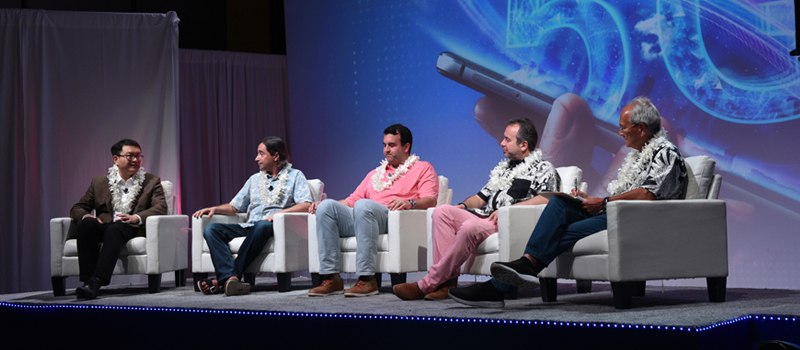How much change will 5G bring to the Internet ecosystem? “Less than you think” or “almost everything” are the range of expectations for 5G expressed at a PTC’20 Center Stage panel on 5G implications. Much hinges on which part of the ecosystem one examines.

The physical layer changes might be least revolutionary. “5G is just another evolution of the ecosystem, using a wider range of frequencies, more fiber, bringing new entrants into the space, and expanding the ecosystem,” said John Ghirardelli, American Tower Corporation director.
On the other hand, there are many new technologies, including MIMO, network slicing, and edge computing, said Yang Yang, ShanghaiTech University professor and co-director of Shanghai Institute of Fog Computing Technology (SHIFT).
Applications and business models might be where the greatest changes happen. All prior mobile generations were built around human end users on phones. The 5G network is the first where machines, sensors, and servers will outnumber phones, and where computers – not people – are the most numerous devices.
5G will differ from 2G, 3G, or 4G, which served people using intelligent devices, said Yang. In comparison, most 5G devices will be “stupid,” requiring computing support at various places in the network, autonomously on devices, someplace in the metro area, or remotely.
Perhaps not surprisingly, 5G will have the greatest and earliest impact on the telecom industry itself, argued Dean Bubley, Disruptive Analysis director. New providers will emerge, including wholesale roles, private 5G operators, and enterprise 5G networks as well, he says.
But 5G could revolutionize scripted television production because “a big pain point is connecting video production to the Internet,” said Ramy Katrib, DigitalFilm Tree founder and CEO. “We compete with FedEx [or physical media],” he said.
One key requirement is ensuring data recoverability even if connections are interrupted. “We assume there will be service interruptions,” Katrib said. So, a key “killer app” is the assurance that all data is recoverable, even in the face of file transfer interruptions.
Moving video files straight to editing suites will be revolutionary, Katrib argued.
And patience might be required. “5G will be really popular by the time 6G arrives,” Yang quipped. “We are in the early days of edge computing,” said Ghirardelli.






























